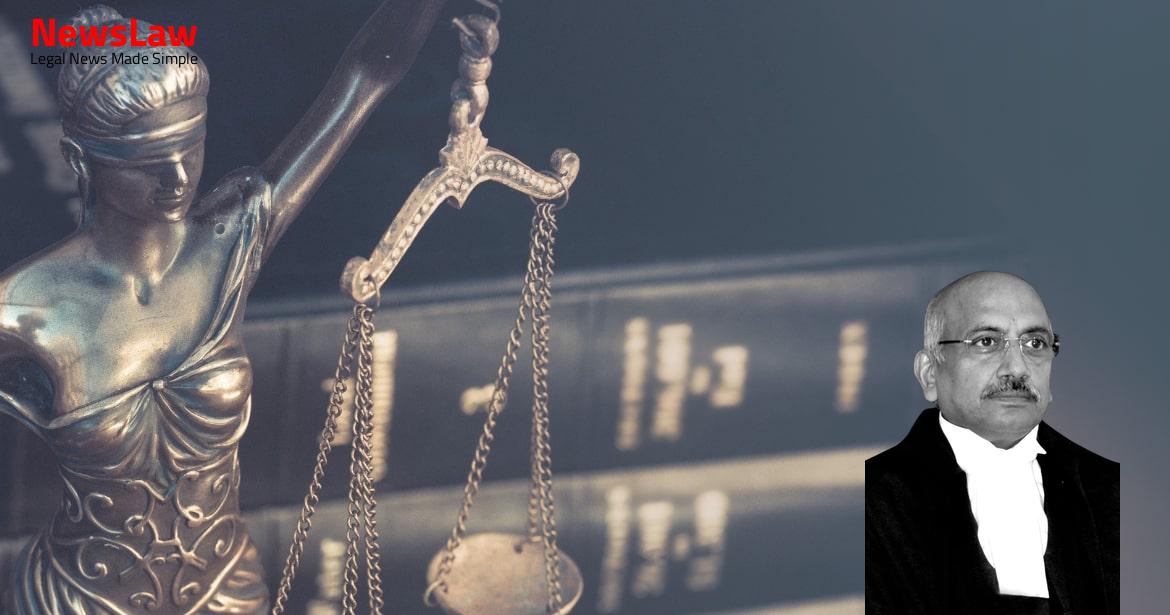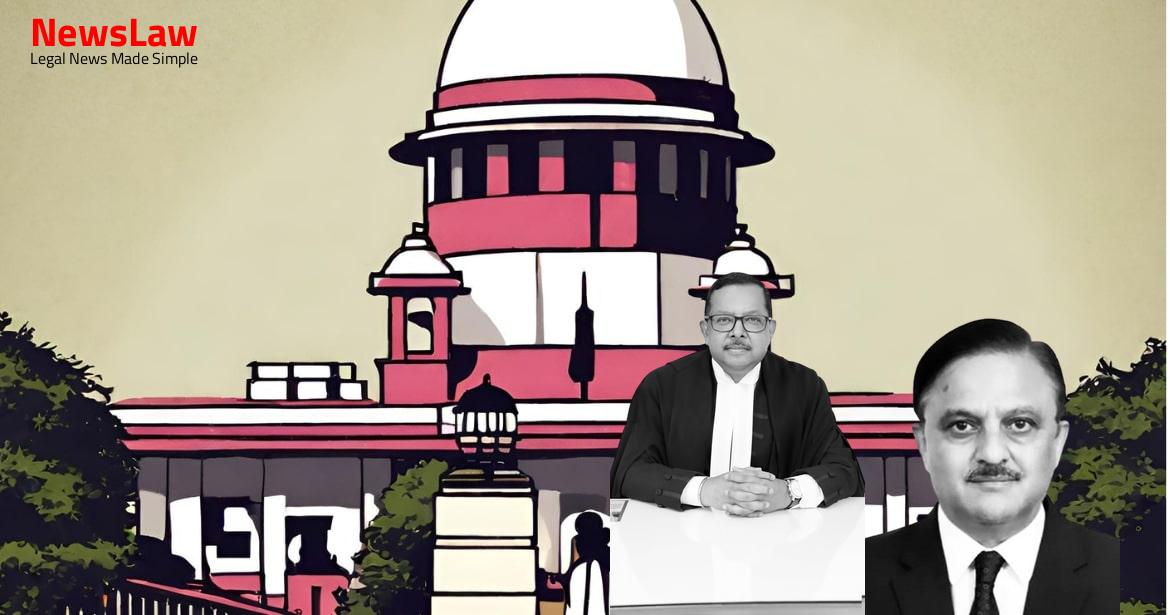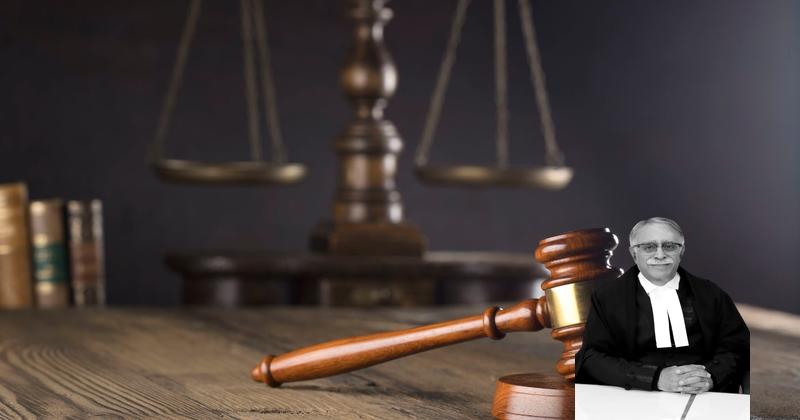In a recent landmark judgment, the Supreme Court of India has overturned the bail decision in the case State v. Accused, highlighting the severity of the crime and ensuring proper legal proceedings. The case involves the state prosecuting the accused individuals for their alleged involvement in a gruesome murder. Stay tuned for more details on this significant legal development.
Facts
- A learned Single Judge of the High Court of Rajasthan at its Jaipur Bench granted bail to the first respondent under Section 439 of the CrPC 1973.
- The bail was subject to certain conditions as mentioned in the order.
- Subsequently, bail was also granted to four other accused named Anil Kumar, Ajay Kumar, Vikas Kumar, and Vijay Kumar.
- The appellant filed a First Information Report on 3 December 2018 regarding the incident involving his now deceased nephew, Akhilesh.
- The deceased was rushed to Jhunjhunu R & R Hospital after being beaten, where 27 ante-mortem injuries were noted.
- The accused allegedly used rods with the intention to kill the deceased.
- A bail application by the first respondent was rejected by the Additional Sessions Judge on 10 April 2019.
- Notice was issued by the Court on 12 July 2019.
- Statements under Section 161 of the CrPC were recorded from the appellant and Aashish.
- The first respondent’s bail application before the High Court of Rajasthan was later allowed.
- The case was committed to the Additional Sessions Judge for trial as the accused were charged under Section 302.
- A common counter affidavit was filed by all five accused persons.
- The post-mortem report was recorded on 3 December 2018, revealing the injuries sustained by the deceased.
- The deceased and Aashish were confronted by the accused on the road, leading to a quarrel.
- A charge-sheet was filed against the five accused under various sections of the Indian Penal Code.
- The deceased left the scene on his motorcycle and was later assaulted by a group of boys armed with dandas.
Arguments
- The appellant argues that there is a prima facie involvement of the accused in a gruesome murder
- The High Court’s decision to grant bail was unjustified as investigation revealed the accused’s potential guilt
- The High Court lacked a reasoned order for granting bail
- The sole eye-witness, Aashish, implicated the accused in the death of the deceased
- The post-mortem report indicated twenty-seven injuries, with the fatal ones occurring within six hours of death
- Evidence such as the deceased’s phone being found with Anil and the bike with the first respondent further connects the accused to the incident
Also Read: CRPF Act: Validity of Rule 27 for Compulsory Retirement – Case of Head Constable vs. CRPF
Analysis
- The High Court failed to consider important facts and showed a lack of seriousness towards the crime and circumstances of the case.
- Aashish Kumar’s statement, who was allegedly present with the deceased during the incident, was recorded under Section 161.
- The court must balance various factors when deciding on granting bail on a case-by-case basis.
- The medical board concluded that the cause of death was coma resulting from head injuries.
- At this stage, the court does not need to delve into detailed evidence but must assess if there is a prima facie ground to believe the accused committed the offense.
- When bail is granted by a lower court, the appellate court should be cautious to interfere and follow set principles.
- The appellate court must assess if the bail order shows a lack of application of mind or is unsupported by evidence.
- The court must form a prima facie view on the possibility of the accused committing the crime, not establish guilt beyond reasonable doubt.
- The charge-sheet details the incident attributing a common intention to kill the deceased to all accused.
- The High Court’s failure to consider crucial details warrants the setting aside of the bail granted.
- Judicial orders on bail should record the reasons influencing the exercise of discretion.
- The court must determine if there was prima facie evidence supporting the belief that the accused committed the crime, taking into account its severity.
- The post-mortem report revealed twenty-seven injuries, with seven on the head.
- The High Court’s assessment was lacking in detail and not sufficiently reasoned.
- The power to grant bail is broad but must be within legal boundaries and comply with court directives.
- Courts should not adhere to a fixed formula but decide bail applications judiciously.
- Failure of the High Court to consider relevant material for granting bail was an error.
- Detailed evidence analysis to establish guilt beyond doubt is not required at the bail stage, as that is for the trial.
- Bail granting should be judicious and not a routine procedure.
- Judges must explain the basis for their decisions on bail applications in order to uphold open justice and transparency.
- Granting bail involves balancing factors like the nature of the offense, severity of punishment, and the accused’s involvement.
- The correctness of bail orders is reviewed for any improper or arbitrary exercise of discretion.
- Precedents like Prasanta Kumar Sarkar v Ashis Chatterjee set the guidelines for granting bail.
- Factors considered in bail decisions include the prima facie view of the accused’s involvement and the likelihood of obstruction of justice.
- Orders granting or cancelling bail are assessed based on different criteria, ensuring the balance between public interest and individual liberty.
- Failure to provide reasons for bail decisions may lead to intervention by the higher court.
- Higher burden on appellate court to provide specific reasons for granting bail when an earlier application has been rejected
- Perfunctory analysis by the High Court in the present case is not sufficient
Also Read: DAMEPL vs. DMRC: Curative Petition and Arbitral Award Restoration
Decision
- The appeal is allowed and the order of the High Court granting bail is set aside.
- The judgment does not express any opinion on the merits of the case at trial.
- The bail bonds of the accused are cancelled, and they are to be taken into custody immediately.
- The connected appeals are also allowed as per the recorded judgment.
Case Title: MAHIPAL Vs. RAJESH KUMAR @ POLIA
Case Number: Crl.A. No.-001843-001843 / 2019



